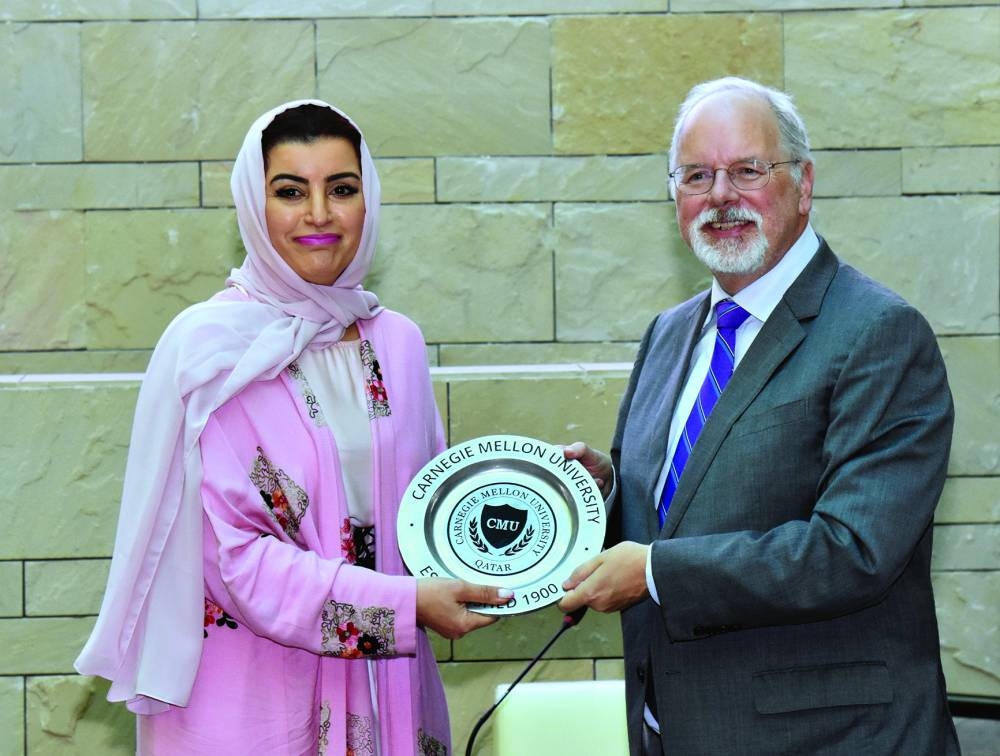Women in Qatar have been key players in the country's socio-economic development in sectors such as business, government and policymaking, and education, a top official of the Qatari Businesswomen Association (QBWA) said on Monday.
QBWA vice-chairperson Aisha Alfardan delivered meaningful insights on the role of businesswomen in community development during the latest edition of the ‘Dean's Lecture Series’ held at Carnegie Mellon University in Qatar (CMU-Q).
During the lecture, Alfardan presented a video, which enumerated the achievements of Qatari women in several milestones achieved by the country, the latest of which was the 2022 FIFA World Cup.
The World Cup highlighted the unique generosity, rich culture, and infrastructure development of Qatar. The global sporting event also emphasised the role of women as leaders, visionaries, and innovators in driving change.
Alfardan stressed that Qatari women “often outperform their male peers” and that Qatari educators have gained global recognition for their achievements. Their influence extends beyond classrooms to administrative boards and policymaking domains, she pointed out.
She said Qatari women also made great strides in government and policymaking, as well as in the country’s business sector, making a strong presence and serving as a source of new ideas and leadership. Qatari women also help guide corporations and startups, becoming major players in Qatar’s burgeoning economy.
Amid these milestones is QBWA, according to Alfardan, who noted that the association has been championing women’s participation and fueling the drive to new achievements and is both a driving force and key contributor to the Qatar National Vision 2013 through various initiatives, programmes, and local and international events.
Alfardan emphasised that women are not only the hub of society, “but they are the society itself” because they are in charge of raising and taking care of their children and families, especially in the Arab world, “so, there is no doubt that educating and investing in women benefits the whole community.”
Beyond economic development, Alfardan said businesswomen in Qatar also champion gender equality, break barriers, mentor others, and advocate for inclusivity, making the workforce more diverse. She noted that women in Qatar provide fresh ideas that drive innovation and solve societal problems with creative ideas and groundbreaking solutions.
Alfardan also lauded the visionary leadership of Her Highness Sheikha Moza bint Nasser and how she provided a “historic opportunity” for Qatari women, enabling them to play a vital role in sustainable development, according to the pillars of the country’s National Vision 2030.
She said Her Highness Sheikha Moza has constantly advocated for gender equality and equal opportunity in education and work, allowing Qatari women to make big strides in local financial and business domains, as well as in innovative projects, thus achieving the success stories that are being celebrated in Qatar today.
On the sidelines of the event, Alfardan and CMU-Q Dean Michael Trick signed a memorandum of understanding (MoU) that stipulates collaborative initiatives between QBWA and the university. “We will work together closely to provide quality opportunities for mentorship and our students,” Trick said.

Michael Trick, dean of Carnegie Mellon University-Qatar, bestowing a token of recognition to QBWA vice chairperson Aisha Alfardan, who was the guest speaker during the latest edition of the ‘Dean's Lecture Series’ held on Monday at CMU-Q. PICTURE: Thajudheen

